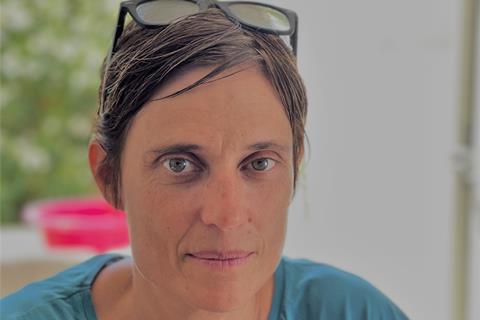
Greek filmmaker Christina Ioakeimidi’s second feature film, Medium, a co-production between Greece’s Ekso Productions and Bulgaria’s Red Carpet, is making its world premiere in competition at the Sarajevo Film Festival this week.
The film, based on a novel by Giorgos Sibardis, follows a 16-year-old girl, Eleftheria, played by Aggeliki Beveratou, who is visiting her pregnant sister, played by Katerina Zisoudi, in Athens. She meets a boy called Angelos with whom she roams the streets of the scorching hot August city on his bike. Nikolakis Zeginoglou co-stars.
Ioakeimidi’s directorial debut, Harisma, premiered in 2010
Wide Management acquired world sales rights to Medium ahead of Sarajevo.
What attracted you to the book by Giorgos Sibardis?
It was the first time that I adapted someone else’s work. Scriptwriting for me is usually a long, lonely process that I don’t particularly enjoy. When I read the novel, I was very excited to recognise themes that keep appearing in my work, like intense family relations, difficulty in expressing emotion, unexpressed trauma, sudden loss. There was also the atmosphere of hot Athens summer that was so strong in the novel, as I was reading it, images would leap out of the pages. The novel is written in a very cinematic way. But it was the main character that I fell in love with, a seemingly naive and lost young woman that proves to have an inner strength and beauty that I found unique.
What were you working on between Harisma and Medium?
My son Marios was born two days after the premiere of Harisma. I remember holding my breath to get through the screening, before the baby coming… Then our daughter was born. I was working on documentaries for the Greek TV and at the same time working on the script for Harisma. I wanted to be there as much as I could for the first years of my kids. I decided to dedicate myself to my other passion, cooking and we started a small street food restaurant that provided us with economic stability and allowed us to work on the side on the development of Medium.
The film participated in two scriptwriting workshops, Equinoxe and Sources 2, at the IPDF program of the LA Greek Film Festival, the Agora of Thessaloniki Film Festival and Sofia Meetings. Somewhere in the middle of all that there was Covid, we had to wait two and a half years for the decision for financial support from the Greek film centre, and somehow 13 years went by… It is not easy making a film in Greece. It not easy in general, but in Greece it is particularly difficult. But I was definitely not in a hurry.
How did you and your producer and life partner Yorgos Noussias pitch the film in order to finance it?
We decided to make this film together and started raising the financing for it many years ago. We participated in the development labs and screenwriting workshops because we felt that they would help in the development stage of the film. Since this is an atmospheric, character-driven film that relies little on plot, it was not easy to pitch it. But we worked a lot on that, and provided many examples and always tried to have a visual presentation of how we imagined the film. To that end, the involvement of DoP Petros Noussias and art director Dimitra Sourlantzi from early on, was extremely helpful.
How did you find your young actors?
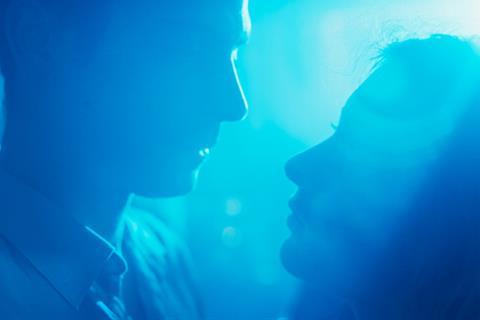
I collaborated with Athens Casting, who also did the casting for my first feature Harisma, so we had a very good understanding of each other, and how we like to work.
Casting the character of Eleftheria was one of the most important decisions that I had to make. She is in every single scene, she carries the whole film. It was during the lockdown that I saw a three-minute dancing solo performed and choreographed by Aggeliki on social media. It was created during an educational dance workshop for teenagers, run by acclaimed dancer and choreographer Marianna Kavallieratos. I saw a passionate, wild, fearless, esoteric young artist. We met in person, and I also saw a shy young girl full of light. Aggeliki had never acted before but I had no doubt that she could pull it off.
The rest of the cast are all professionals. Nikolakis, who plays Angelos, was cast at the same time. He met with Aggeliki on a regular basis and rehearsed a lot. It was important to me that they first establish a relationship and feel comfortable with each other. He was incredibly supportive and excited with the challenge of working with a non-actor. It would not have worked if he were not.
We did a lot of rehearsals, and whenever possible on location. I insisted a lot on that. All the other actors embraced Aggeliki and created a special bond with her, it wouldn’t have worked out if they didn’t. I was so lucky to have them!
What were the biggest highs and lows of the shoot?
Athens is the third protagonist in this film. I started looking at locations with Petros and Dimitra very early on. It took endless hours of walking around in central Athens and looking at houses for the main location of Angelos and Alexandra’s house. The shooting date was approaching, and we still hadn’t found the right house, I remember riding around on my bike and knocking on doors of houses that looked interesting. We got lucky just a few days before the shoot, and the art department did an amazing job in transforming the location and making the characters’ home. The shooting took place during the scorching summer. I hate the heat. It makes me crazy. But we didn’t have a choice.
The best and also the most challenging part were the beach scenes. From the scriptwriting stage, those were the scenes that I could visualize best. They were challenging because we had limited time to shoot, and it was in rough conditions: heat, sun, remote locations, underwater shooting, but also a sex scene with a young girl who has never acted before. Sometimes, working under a lot of pressure is when the most creative things happen. When you are outside your comfort zone.
What would you like audiences to take from the film?
That there is a special beauty in allowing ourselves to become vulnerable to the other person even though it can prove to be painful. As we grow older and “wiser” it gets more and more difficult to put ourselves through that without any protection. Such experiences defy us as adults.

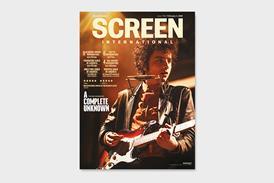
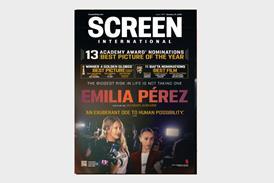

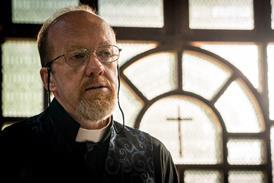
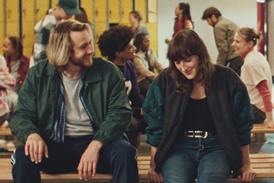
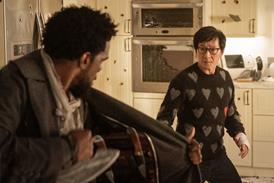





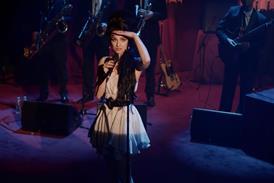

![[L-R clockwise] 'Anora', 'A Complete Unknown', 'Conclave', 'The Apprentice'](https://d1nslcd7m2225b.cloudfront.net/Pictures/274x183/6/5/3/1442653_casting_918941.jpg)

!["Within two weeks [of moving to Northern Ireland] I met Kneecap, the biggest caners in Belfast," says Peppiatt](https://d1nslcd7m2225b.cloudfront.net/Pictures/274x183/5/3/9/1442539_kneecap1creditpeadarogoill_298103.jpg)






![[L-R clockwise] 'Anora', 'A Complete Unknown', 'Conclave', 'The Apprentice'](https://d1nslcd7m2225b.cloudfront.net/Pictures/100x67/6/5/3/1442653_casting_918941.jpg)
No comments yet